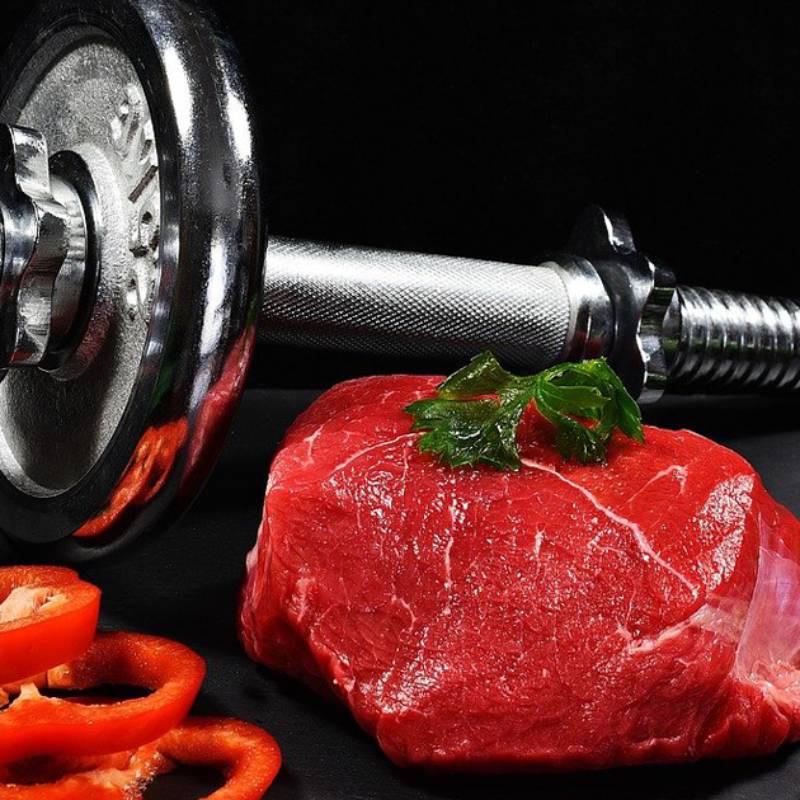Sports nutrition : should you eat less on your rest day?

The answer is no. Say no to restrictions! Nutritional requirements on active days are not much higher than on rest days. Don’t eat less when you are less active, eat DIFFERENTLY. Our needs vary depending on the intensity and duration of our workouts.
It is essential to change a few servings of food in order to reach an optimal level of energy and to achieve your physical objectives. By modifying the consumed quantity of certain food groups, recovery is maximized and sports performance is therefore improved. In addition, we rely on diversity and balanced meals.
What should you consume ?
Three essential food groups must be consumed in the right quantity and at the right time to promote sports performance and optimal daily recovery.
Proteins :
A balanced diet provides adequate protein, even for athletes. So there is no need to overconsume. Opt for fish, poultry, legumes, tofu, and even tempeh. Limit red meat and avoid processed meats such as bacon and deli meats.
Carbohydrates :
Make whole-grain cereals like brown whole grain bread, quinoa, brown rice, or whole-grain pasta your number one choice for high-carb foods.
Fruits and vegetables :
Consume fruits and vegetables in large quantities. Vary your colors and shapes. Opt for less greasy cooking methods such as steamed, roasted, or sautéed.
Managing your portions on active days
On active days, our body needs energy. Carbohydrates provide a huge part of the energy needed for the body to function properly. It is therefore essential to consume enough carbohydrates to maintain an optimal energy level throughout the day and when you train.
Make sure that at least a quarter of your plate consists of complex carbohydrates (brown rice, whole grain bread, etc.) It is also important to include protein-rich foods in your meals that make up another quarter of the plate. Fill up the rest of your plate (half) with at least two different colors of fruit or vegetables.
Optimize your recovery
When your next meal is more than 2 hours after your training, include a snack. To maximize recovery, take it within 30 minutes of your activity. It should consist of about 30g of carbohydrates and 10g of protein for a ratio of 1g of protein to 3g of carbohydrates (see examples below).
In case of higher energy consumption, add a snack between two meals taking into account the same ratio.
Managing your portions on rest days
On less active days, a balanced diet is the key to success for an ideal recovery. It will allow you to bring the nutrients necessary for proper bodily function, maintenance, and muscle development.
Base your meals mostly with fruits and especially vegetables. Make sure you have all the food groups on your plate by varying colors, grains, and animal and plant proteins. Choose cuts of lower-fat meat and grain products with maximum fiber.
Finally, on active days, make sure that you have enough carbohydrate-rich foods on your plate and include snacks in your routine, which contain proteins and carbohydrates. On more sedentary days, we aim for 50% of fruits and vegetables.
Meal preparation
It is important that meals are not a source of stress on a daily basis. Therefore, here are 7 simple and effective solutions to improve the preparation of your meals.
- Prepare at least 2 meals in advance during a weeknight or during the weekend;
- When you cook your meals, prepare more so that there are leftovers;
- Before you sit at the table to enjoy the meal, prepare your leftovers by separating your portions into take-out containers. This way, you will avoid eating out again and your meals will be ready for the next day;
- Set up a menu at the beginning of the week, so you don’t waste time trying to find recipes during the week;
- For effective preparation, marinate meat in advance and freeze it;
- Prepare slow cooker meals on busier nights;
- If it’s possible, involve your children in the process to save time, money and energy, while having fun.
Athlete myths
Some sports supplements, foods, and drinks are often unnecessary. It is much easier to overconsume food than to spend energy through physical activity on a daily basis, which is where Health Canada’s recommendations come from:
- Be active for at least 2.5 hours per week to obtain health benefits including energy expenditure
- Divide activities throughout the week into sessions of ten minutes or more each.
These drinks or supplements can be very high in liquid calories, which increases the total energy intake in our day. If you look at the nutrition label, it can even be difficult to recognize certain ingredients.
So here is an energy drink recipe to make at home for great performance. You can also be sure of all the ingredients contained in this energy drink!
Post-training energy drink recipe
Choco-banana shake
- 1/4 cup milk powder
- 1 tbsp cocoa
- 1 pinch cinnamon
- 1/2 banana
- 2 cups cold water
Foods containing about 8g of proteins
- 250 ml (1 cup) of milk
- 250 ml (1 cup) of soy beverage
- 60 ml (1/4 cup) of cottage cheese
- 30 g (1 oz) of cheese
- 30 ml (2 tablespoons) of peanut butter
- 60 ml (1/4 cup) of almonds
- 30 g of meat
- 40 g of canned tuna
- 1 egg
Foods containing about 15g of carbohydrates
- 1 slice of bread
- 125 ml (1/2 cup) of whole-grain cereal
- 1/2 pita bread, 1/2 bagel, 1 small tortilla
- 75 ml of pasta or rice, cooked
- 1/2 a muffin
- 30 to 45 ml (2 to 3 tablespoons) of raisins or dried cranberry
- 1 dried fruit bar
- 1/2 a granola bar
- 1 fruit or 250 ml (1 cup) of berries
Enjoy your drink !
Madélie Johnson MSc. Dtp/RD.



